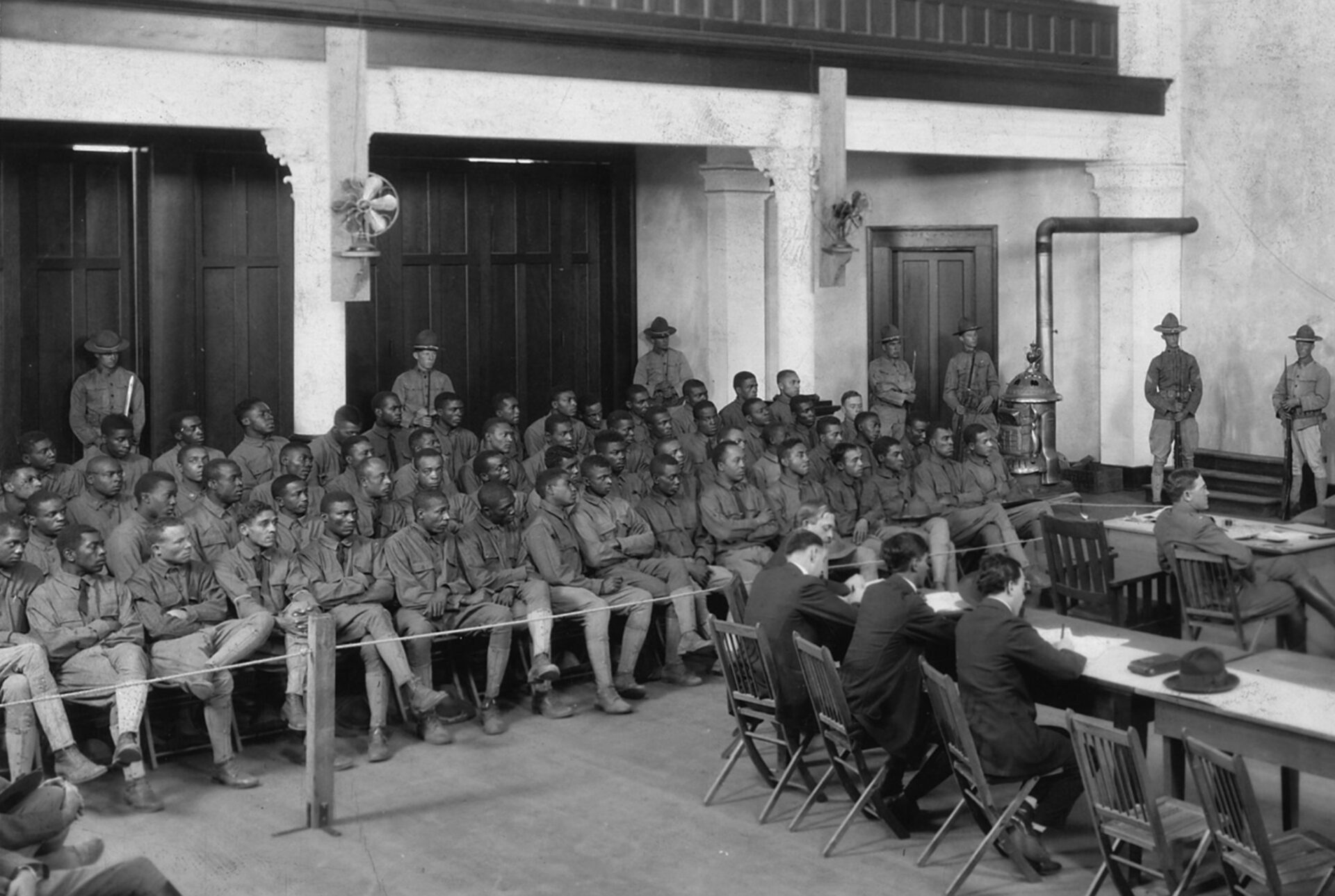
February 27, 2024
U.S. Army Honors Black Soldiers Wrongfully Executed In Jim Crow Era Mass Hanging
The U.S. Army has overturned its convictions against Black soldiers from the Jim Crow era, bringing some closure to a painful past.
CBS News reports that the U.S. Army has overturned its convictions against Black soldiers from the Jim Crow era. Fort Sam Houston’s Veterans Cemetery in San Antonio, Texas, stands as a repository of narratives etched in stone – tales of service, sacrifice, and, in one row, a painful chapter of injustice and racial discrimination. Angela Holder, standing by her great-uncle Cpl. Jesse Moore’s headstone expressed the void in their stories, saying, “Ours don’t have a story; they just have a name and date of death.” Moore was one of 13 Black soldiers from the 24th Infantry Regiment, subjected to the largest mass execution in Army history during the Jim Crow era.
Moore’s niece shared her determination to rectify the injustice after learning of her great-uncle’s tragic fate. Recounting the discovery from her Great-Aunt Lovie, Holder explained, “I was told that that was her brother who had been killed by the Army.” The soldiers were convicted of mutiny and murder, sentenced to hang without a chance for appeal, and their bodies placed in plain pine coffins after execution.
Historian John Haymond shed light on the event, describing the night-long efforts to erect a unique scaffold for the simultaneous hanging. The gallows, now a golf course at Fort Sam Houston, hid a dark secret for two decades as the bodies lay in unmarked graves, each identified only by a number.
The soldiers of the 24th Infantry Regiment, proud Black servicemen who had served in Mexico and the Philippines, found themselves entangled in racial tensions in Houston. Charles Anderson, a relative of Sgt. William Nesbit emphasized the racism prevalent in “Jim Crow’s hometown.” Despite wearing the uniform, Black soldiers were still demeaned and referred to using racial slurs.
A race riot erupted following false rumors, leading to the soldiers’ arrest and a cascade of court-martials. The trials, the largest murder trial in American history, lacked due process. Thirteen were condemned to death, a verdict withheld until 12 hours before execution. Facing the gallows, T.C. Hawkins expressed his innocence in a poignant letter, leaving a lasting impact on his descendants.
Over a century later, the Army undertook a comprehensive review, acknowledging the absence of fair trials for all 110 initially court-martialed soldiers. Under Secretary of the Army Gabe Camarillo affirmed the influence of race in the trials and executions. The Army’s decision to posthumously honorably discharge the wrongly convicted soldiers and provide new headstones brings a semblance of closure.
At a commemoration ceremony, Holder witnessed the unveiling of proper headstones for her great-uncle and others. Chaplain James Hall’s prayer encapsulated the moment, seeking forgiveness for the nation and expressing gratitude for a country capable of change, adjustment, and making amends. The Army’s efforts reflect a commitment to acknowledging historical injustices and offering belated recognition to these Black soldiers who once faced a grave miscarriage of justice.
RELATED CONTENT: Biden Pledges Response To 3 Black Army Soldiers Killed During Drone Attack In Jordan